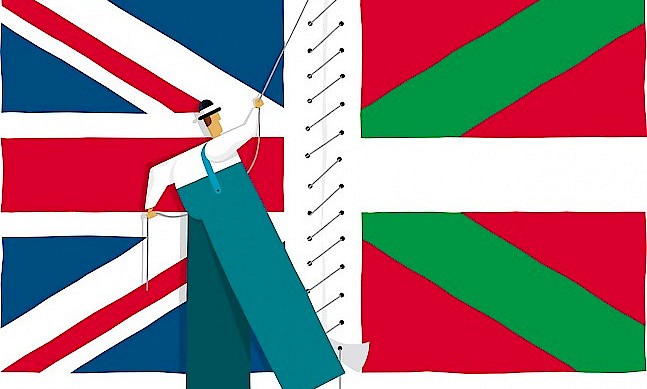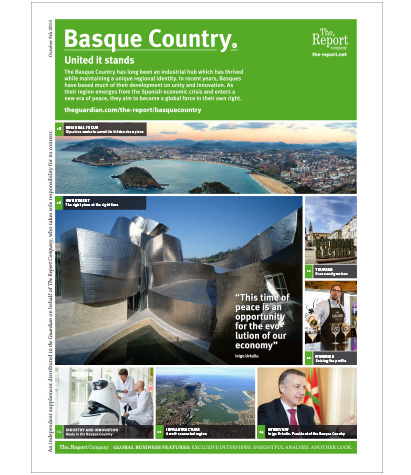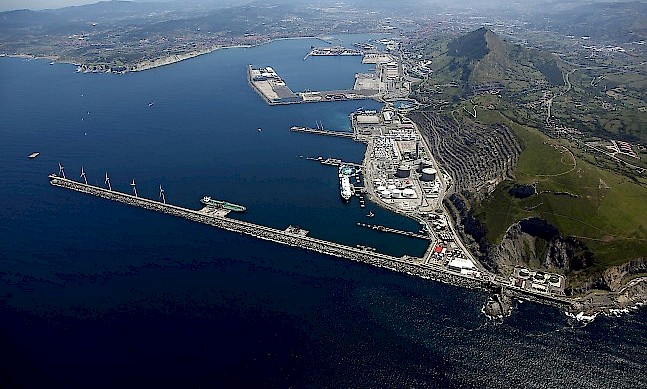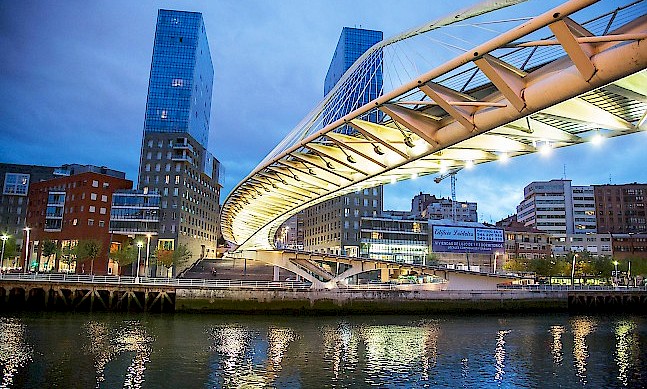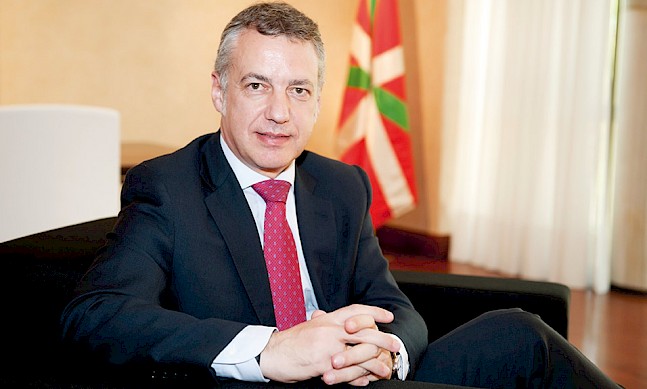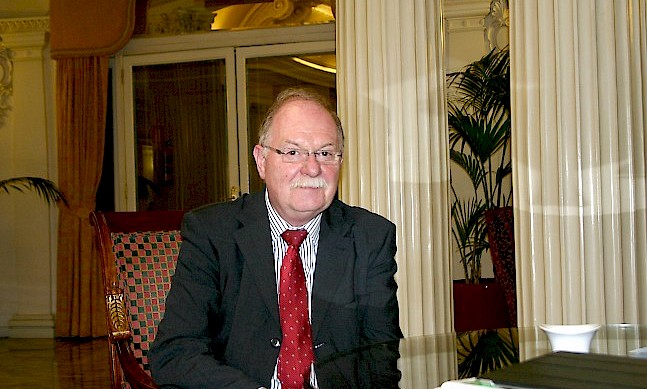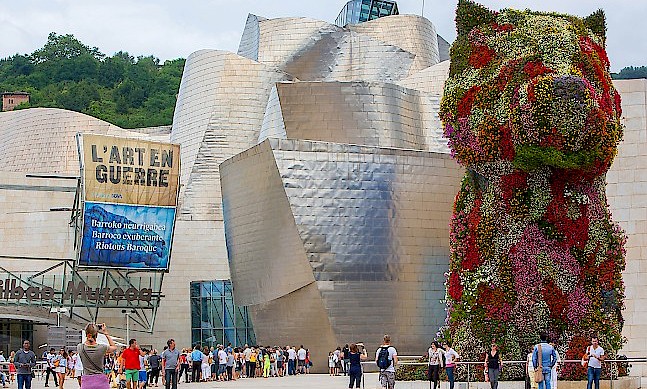The Basque Country and the UK have several prominent business links and a longstanding trading relationship. As British consul and senior UKTI adviser, Derek Doyle is dedicated to getting the word out to British business about what this corner of northern Spain has to offer, as well as facilitating investment into the UK by Basque companies. He sat down with The Report Company to talk about his view of the region, his role, and how he sees the evolving relationship between the UK and the Basque Country.
The Report Company: What would you say are the biggest misconceptions about the Basque Country and how do you think it should be perceived by British companies and potential investors?
Derek Doyle: One of the misconceptions has to do with the recent past of the Basque Country. The violence distorted the picture and whilst that violence was there, there were a lot of important things going on that were missed because unfortunately many newspapers only look for the bad news, because that’s often what attracts readership.
This misconception about the Basques and violence is something that the Basque government have always worked at dispelling and are now working more on, particularly as a result of the ETA declaration of the end of violence. That was one of the misconceptions; that the Basque society was a violent one. We have seen ourselves in Northern Ireland the damage the generalisations can do.
Another possible misconception is that the Basques are a bit reserved and a bit difficult to get on with. I’ve been here a very long time, but I always remembered from day one that I have never felt a stranger. What I did feel was that people wanted to communicate, to assist, to help, and over the years what I’ve detected too is a receptiveness on the part of Basque companies, on the part of Basque businesspeople, on the part of Basque politicians, to be communicative, which doesn’t coincide with the perception that Basques are standoffish.
TRC: Could you share with us what your mandate is, your main focuses and your most important objectives?
DD: Here, as representative of Her Majesty’s Government and UK Trade & Investment in the Basque Country and Northern Spain, our remit is large. It’s the Basque Country, Cantabria, Asturias, Leon, Palencia, Burgos, La Rioja and Navarre. It’s an area the size of Scotland.
Our remit has traditionally been to promote and protect British business interests in Northern Spain, to assist British companies to do business in Northern Spain, and particularly in the Basque Country, and at the same time to be alert to opportunities with respect to inward investment.
Another part of the job here is trying to understand a little the political relationship, and how politics influences business.
TRC: How would you describe the historic relationship between the UK and the Basque Country?
DD: Our recorded relationships in trade terms with the Basques go back to 1474. A trade charter was signed by Edward IV and reciprocated in Guernica whereby Basque merchants could freely trade with the protection of the Crown in the UK, and English merchants could freely trade in the Basque Country.
This part of the world had important iron ore reserves and British companies used to come down to get the ore and take it back to the UK and make steel. Then it occurred to an enterprising Basque to ask the British to bring coal with them so steel could be made in the Basque Country. So the start of the Industrial Revolution with respect to steel was started by the British, and there were joint ventures here with British companies and Basque businessmen. A Basque ship owner by the name of Sir Ramon de la Sota put his merchant fleet at the disposal of the British Crown during the First World War, and was knighted in return for his services, and that link continues.
“This misconception about the Basques and violence is something that the Basque government have always worked at dispelling and areTweet This
now working more on, particularly as a result of the
ETA declaration of the end of violence.”
During the Spanish Civil War, Britain at that time had no interest in becoming involved. Following the bombing of Guernica, Leah Manning, a Labour MP, decided that something serious had to be done to get the children out, with the result that 4,000 children from the Basque Country were evacuated to the UK. Those children had an association, which disbanded a couple of years ago. One of their ambitions, which we helped them to fulfil, was to present a plaque to the British people to commemorate what they had done. This was reciprocated by Leah Manning Square being set up in Bilbao, to remember the work that she did to get the children to the UK. So there’s also an emotional link between the UK and the Basque Country.
There is also an empathy between the Basques and the Brits and it’s represented in football. Athletic Bilbao was formed because all those engineers and businesspeople that came here to build the railways and the steelworks brought their children with them and it was the children that started kicking a ball about. The supporters shout “Aliron”, which comes from “All Iron”, which is what the miners would shout when they discovered a seam of good iron ore, so that has entered the language here.
We’ve got that link, that tradition, that history and the nostalgia is great, but more important is the future. I think we have a privileged position with respect to our relationship because we have all that tradition, all that historic connection and at the end of the day we are liked and we are admired so we need to take advantage of that.
TRC: What is the current status of the relationship between the UK and the Basque Country?
DD: Relations are excellent. We come in fourth as a supplier of goods and services, but we also have magnificent examples of collaboration, such as ITP. ITP is a joint venture between Rolls Royce and an engineering company from the Basque Country called SENER. It has just celebrated its 25th anniversary. The initial ambition was to become involved in the engine of the Eurofighter, so Rolls and SENER came together in a greenfield site and built a factory.
The relationship progressed and SENER began to bring to the mix their own engineering research and development capacity, with the result that they have become a strategic partner for Rolls Royce to the extent that the forecasts are that within the next five years or so, 50 percent of all double aisle wide bodied aircraft flying in the skies will be equipped with Rolls Royce engines and the low pressure turbines will be made here.
This is reminiscent of what happened years back in the Industrial Revolution where Brits and Basques came together.
TRC: What makes the Basque Country different to the rest of Spain?
DD: The origins of the Basque are a mystery and no-one knows where their language came from, but as a friend of mine once said, the Garden of Eden has to be somewhere. You’ve got the food, you’ve got the landscape. Eighty percent of the Basque government’s budget is spent on education, healthcare and social services so there is this commitment to the welfare of people.
One essential characteristic that makes the Basque Country different is that it raises and administers its own taxes and that is the backbone to what makes this place tick. This gives it a power over its destiny that other regions don’t have in the same way and has led to the Basque Country becoming the pioneer region of Spain in the development of clusters. The government sets priorities and supports them. Not subsidising, but supporting. There are very important clusters in the automotive sector, in aeronautics and in life sciences amongst others.
“I’ve been here a very long time, but I always remembered from day one that I have never felt a stranger.”Tweet This
The result is that today it is one of the wealthiest regions of Spain. Its GDP per capita is around €30,000, which is well over the rest of Spain. Unemployment is 16 percent, compared to around 26 percent in the rest of Spain, and that’s because the model is different. The model is based on a commitment to industrial activity. Two point four percent of the Basque Country’s GDP is re-invested in research and development and hence you’ve got these R&D centres scattered around the Basque Country. Many are involved in advanced engineering, materials science, including composites and nanotechnology, and there is a commitment to being competitive and keeping ahead.
This part of the world didn’t get drawn into the real estate and construction bubble. That isn’t to say that they weren’t supplying nuts and bolts and screws to companies making doors and windows, but the impact of the bubble bursting was cushioned by the fact that they had the industrial base and they had an economy heavily committed to exports.
The signs are now that Spain is improving. There are positive indicators and I think there’s the beginnings of a good feeling, but at the moment the state of the Spanish market is difficult. There are some sectors that are particularly sensitive, such as energy. There is a very important energy industry cluster in the Basque Country, with over 300 companies involved in the sector, from Iberdrola to people making cabling. With the present state of the Spanish market, those companies, if they were international before, the need to be more international is even greater now. In fact, Ignacio Galan, the president of Iberdrola, recently said that the company is more British, more American and more Mexican than it is Spanish.
He also announced that his company plans to invest €9 billion next year, of which 40 percent will be invested in the UK, so the relationship with Iberdrola and Scottish Power is not one to be shied away from. With Iberdrola, we have a very close working relationship and also with Scottish Power.
The Basque Country has as a priority marine energy development. It’s got a site that’s going to come onstream early next year, probably coinciding with the Bilbao Marine Energy Week in April, the Biscay Marine Energy Platform, which will be a testing site for marine energy converters.
In healthcare, the Northern Ireland government and the Basque government have a memorandum of understanding in and around the subject of aging and chronic illness and the better management of both. Northern Ireland unlike the rest of the UK with the exception of Scotland has health and social services under one roof and the Basques are moving in that direction, and similarly the Scots are also very conscious of aging and chronic illness. The previous Basque minister of health is now an advisor to Obama on the healthcare reform and he is also an advisor to the new president of Chile. He started in the health department in the Basque Country in the early 1980s and at that time we put together visits from the emerging Basque healthcare services to the UK to look at the NHS at that time. They came back and adopted the model, so there’s always been this kind of link and interest of what’s going on in the UK in the healthcare sector.
“Relations are excellent. We come in fourth as a supplier of goods and services, but we also have magnificent examples of collaboration,Tweet This
such as ITP.”
TRC: Where do you see opportunities for partnerships within the automotive sector?
DD: On 6th May we are organising an event in the automotive sector and our partners are the automotive intelligence centre here and the cluster which is called ACICAE. We’ve talked to the cluster about our automotive strategy in the UK. Currently, the automotive industry in the UK is booming. It’s never been better. We have again a return to a manufacturing ethos.
The UK government and the sector have sat down and looked at the supply chain and have discovered that there’s £3 billion of business, of bits and pieces missing in the supply chain that have to be filled, and if you want a sustainable car industry with a long term future, you have got to fill those gaps. So we had a chat with the cluster here, and we’ll be organising this event. Jaguar Land Rover will come to talk about how to do business with them and they’ll be talking strategy. We’ll also have the automotive investment office come, and we’ll then have one-to-one meetings. The message is, you’ve got this market within two hours’ flying distance of you; you don’t need to think about going to the other end of the world. There is potentially £3 billion distributed amongst a shopping list, and if you don’t take advantage of it, your competitors will.
TRC: What is your outlook for the renewable energy sector?
DD: The Spanish renewable energies association has said that between now and 2018 they do not expect a single megawatt of wind energy to be installed in Spain. There’s over capacity. The regulatory framework is insecure. Therefore, from our perspective, what are the opportunities in renewable energy? In Spain, an opportunity lies in energy efficiency, but from our perspective the largest opportunities are offered by the offshore wind round three programme in the UK to Spanish, German and other investors.
There are nine sites around the UK that were awarded to developers in 2010. One of the largest sites is a joint venture between Iberdrola and their partner Vattenfall for 7,200 megawatts and that is just off East Anglia. Another one just off the coast of Scotland around Edinburgh is for 1,300 megawatts and the partners are EDP and Repsol. Funnily enough, the leader of Repsol with respect to renewables is the ex-president of the Basque National Party, so you’ve got this Basque businessman who has an influence over what goes on with 1,200 megawatts off the coast of Scotland.
We’re talking with Iberdrola about how we can introduce more British companies into their supply chain, to create jobs and wealth in the UK. There is a desire by the British government to bring knowledge to the UK. Our manufacturing expertise about wind energy in general isn’t comparable to what’s here in the Basque Country and so we’re learning from them and growing together.
TRC: What would you highlight as the main draws for tourists coming to the Basque Country?
DD: The Guggenheim has put Bilbao on the map, whilst the Bilbao Fine Arts Museum, which is next door, is regarded as after the Prado the best in Spain. Then there’s the gastronomy; the 25 Michelin stars distributed across the region are evidence to its excellence. You’ve got the scenery, the trekking, you go 15-20 minutes outside of Bilbao and you’re in the heart of magnificent countryside. You’ve got the coast, you can climb the mountains. There’s a lot going on.


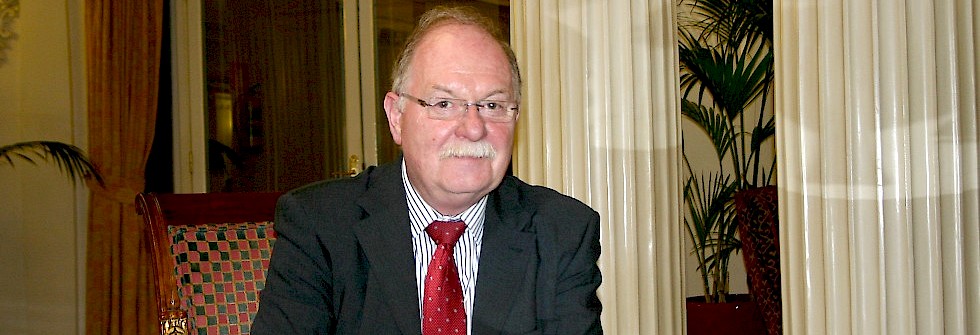 Photo: British Consulate Bilbao
Photo: British Consulate Bilbao
